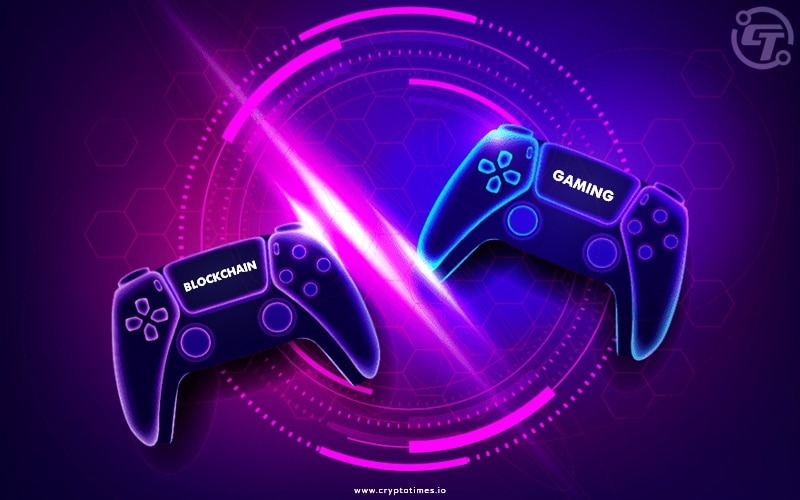Introduction:
The synergy between online เบทฟิก เว็บตรง gaming and blockchain technology has given rise to a transformative era in the gaming industry. Beyond the realm of cryptocurrencies, blockchain is making waves as a disruptive force, reshaping the landscape of online gaming. This article explores the multifaceted relationship between online games and blockchain technology, delving into how decentralized ledgers, smart contracts, and non-fungible tokens (NFTs) are revolutionizing the way we play and interact within virtual worlds.
Decentralized Ownership with NFTs:
One of the most profound impacts of blockchain technology on online gaming is the introduction of non-fungible tokens (NFTs). NFTs, which are unique digital assets representing ownership of in-game items, characters, or skins, provide players with true ownership of their virtual possessions. This marks a departure from traditional gaming models where players are essentially renting in-game assets from developers.
NFTs leverage blockchain’s decentralized ledger to ensure transparency and permanence in ownership. Whether it’s a rare weapon skin, a unique character, or a piece of virtual real estate, players can secure their digital belongings on the blockchain, granting them verifiable ownership outside the confines of a specific game’s ecosystem. This not only enhances player agency but also opens up new opportunities for the creation of a digital asset marketplace where players can buy, sell, and trade their NFTs across different games.
Smart Contracts for Fair and Transparent Gameplay:
Blockchain’s smart contract functionality is another game-changer for the online gaming industry. Smart contracts are self-executing agreements with the terms of the contract directly written into code. In the context of online gaming, smart contracts bring a new level of fairness, transparency, and automation to various aspects of gameplay.
Imagine a scenario where in-game transactions, such as item trades or bets, are facilitated through smart contracts. These contracts automatically execute and enforce the agreed-upon terms, eliminating the need for intermediaries and ensuring a fair and transparent gaming environment. This not only streamlines in-game transactions but also minimizes the risk of fraud or disputes, enhancing the overall trust and integrity of the gaming experience.
Tokenized Economies and Player Incentives:
Blockchain technology enables the creation of tokenized economies within online games, providing players with new ways to earn, spend, and trade digital assets. In-game currencies or tokens built on blockchain can be seamlessly integrated into the broader cryptocurrency ecosystem, allowing players to transfer value across different games and platforms.
Tokenized economies also open up avenues for developers to implement novel player incentive structures. By rewarding players with blockchain-based tokens for achievements, participation, or contributions to the gaming community, developers can foster a more engaged and dedicated player base. These tokens can then be exchanged for in-game items, traded on external platforms, or even converted to other cryptocurrencies, creating a dynamic and interconnected gaming economy.
Securing In-Game Transactions and Assets:
Security has always been a paramount concern in the online gaming space, with players facing risks ranging from hacking to fraudulent transactions. Blockchain technology addresses these concerns by providing a secure and tamper-resistant ledger for in-game transactions and asset ownership.
Through the use of cryptographic techniques and decentralized consensus mechanisms, blockchain ensures the integrity and immutability of transaction records. This not only safeguards players’ financial transactions but also protects the rarity and uniqueness of virtual assets. By anchoring in-game assets to the blockchain, developers can mitigate the risk of counterfeiting or unauthorized duplication, providing players with a more secure and authentic gaming experience.
Community Governance and Decentralized Development:
Blockchain’s decentralized nature extends beyond in-game assets and transactions; it can also impact the governance and development of online gaming platforms. Decentralized autonomous organizations (DAOs) powered by blockchain enable community-driven decision-making, giving players a direct say in the development and evolution of the games they love.
Through token-based voting systems, players can participate in key decisions such as game updates, feature additions, or community events. This not only empowers the gaming community but also fosters a sense of ownership and belonging. Developers, on the other hand, can benefit from direct feedback and collaboration with their player base, leading to more player-centric and community-driven game development.
Challenges and Future Prospects:
Despite the promising potential of blockchain in online gaming, challenges remain. Issues such as scalability, high transaction costs, and the environmental impact of certain blockchain networks need to be addressed for widespread adoption. Moreover, ensuring a seamless and user-friendly experience for players unfamiliar with blockchain technology is crucial for its successful integration into mainstream gaming.
Looking ahead, the future of online gaming and blockchain technology seems poised for further innovation. As scalability solutions and more eco-friendly blockchain networks emerge, the integration of blockchain in gaming is likely to become more widespread. The advent of decentralized virtual worlds, interoperability between games, and the continued exploration of NFTs and tokenized economies promise to redefine the very fabric of online gaming.
Conclusion:
The integration of blockchain technology into online gaming represents a paradigm shift in the way players interact with virtual worlds. From true ownership of in-game assets through NFTs to transparent and automated smart contracts, blockchain introduces a new era of fairness, security, and player empowerment. As developers continue to explore the potential of this transformative technology, the intersection of online gaming and blockchain holds the promise of creating more immersive, player-centric, and interconnected gaming experiences. The ongoing evolution of these technologies ensures that the future of online gaming will be shaped not only by the creative minds of developers but also by the decentralized power of the gaming community.





